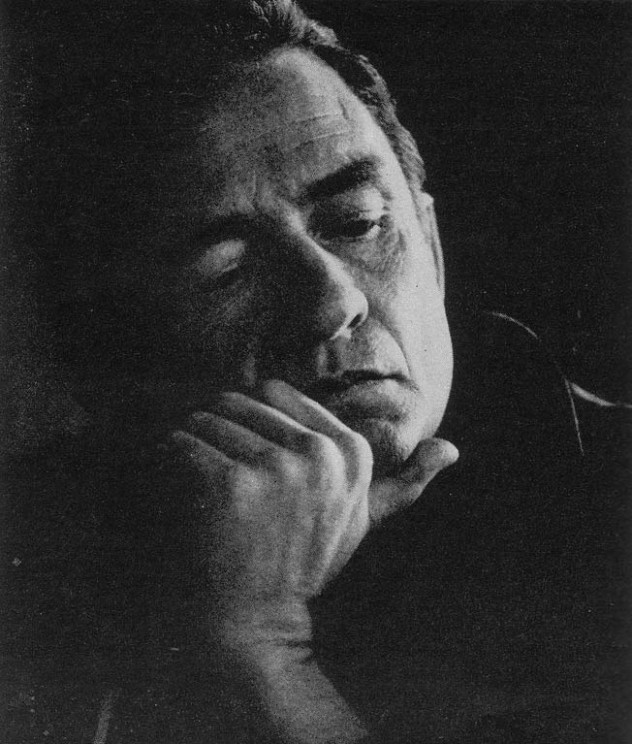By Cretien van Campen
Frail older people are more oftentimes considered a burden for society, than not. They are perceived to require intensive care that can be expensive while producing nothing contributory to society. The collective image is that frail older people are ‘useless’. In my opinion, we do not endeavor to ‘use’ them or know how to release productivity in them.
Around the age of 70, the extremely frail wheelchair bound musician Johnny Cash made the music video ‘Hurt’ with the help of film director Mark Romanek and producer Rick Rubin. The video was a tremendous success, receiving abundant critical acclaim and becoming a favorite with many for all time. The song was taken from a series of albums, the ‘American Recordings’, Cash created in his frailest period, selling millions of copies. The albums have been regarded as outstanding contributions to American culture and many people have found strength, joy and solace in his recordings.
Click here to view the embedded video.
Cash was no exception. He was not the only frail older person who flourished in his last years. The painter Henri Matisse, the music conductor Herbert von Karajan, and others reached creative summits in the last seasons of their lives. Also non-artists like sawmill worker Lester Potts became a creative painter in his later years when he was suffering from Alzheimer’s disease. In other types of dementia, such as frontotemporal dementia, creativity can be released as well.
The case of Cash also is an example of what is needed to release creative productivity in a frail older person — and what has to be avoided. In his last years Cash suffered from several complex diseases and physical limitations, a long and sad process which biographer Robert Hilburn has described with compassion and in detail. Cash was successively diagnosed among others with Parkinson’s disease, Shy-Drager syndrome, and double pneumonia. These contributed to hospital admissions several times a year and receiving prescriptions in quantities that greatly impacted the long time Dexedrine (speed) addict. (Cash had been addicted during his career as a touring artist.)

By the end of the twentieth century Cash was in forlorn condition, exhausting himself in a mixture of drugs and over-extended tours. Of deeper emotional consequence, his records did not sell the numbers they once had. His musical career was considered by many to be over by the time he was approached by producer Rick Rubin. In retrospect Rubin gave Cash two ingredients that supported his creative productivity: mental reminiscences and physical exercises.
In elongated sessions at home Rubin and Cash played old and new music, evoking reminiscences with musical roots and connecting them with the music of younger generations, which created new flourish and renewed hunger for music in Cash. He transformed from an older musician playing golden oldies into an interpreter of contemporary songs with vision, re-honing his craft. Mentally, he returned from living in the past to living in the present and creating new interpretations, which revived a sense of direction to his life. He connected to younger generations and inspired them with his interpretations as he mutually was inspired by their music.
Not only in the mental and spiritual domains did he regain strength, but also in the physical domain. Rubin engaged a befriended physiotherapist. Physical exercises got Cash out of his wheelchair and walking independently again, while simultaneously bringing back feeling in his fingers to play the guitar with agility. By exercising his body, energy returned and he was able to sustain longer recording sessions, his most valued passion.
Rubin is an artist, not a doctor. He did not cure Cash. Instead he gave a man whose health was rapidly declining renewed opportunities and stimuli to thrive and find meaning in his life. Cash often said that all he wanted was to make music. The music gave him the will to survive, and to fight the diseases.
Although the medical records of Cash are confidential, reports from his family share indications that he was overmedicated. According to his son, his father would have lived longer and produced more songs and recordings if the medication had been decreased – something his physiotherapist pleaded for several times after another hospital admission.
Returning home after this hospital stay, every inch of his body appeared unduly medicated. As well meaning of his professional caregivers were in prescribing such pill-induced treatments, he actually lived in a medical cage, and his brilliant mind suffered. Fortunately some of his family members and friends understood he needed physical, mental, and spiritual space to flourish. They helped in opening that cage with recovered mental and physical strength and he eloquently delivered to us some of the most heart-provoking songs in the history of music.
Cretien van Campen is a Dutch author, scientific researcher and lecturer in social science and fine arts. He is the founder of Synesthetics Netherlands and is affiliated with the Netherlands Institute for Social Research and Windesheim University of Applied Sciences. He is best known for his work on synesthesia in art, including historical reviews of how artists have used synesthetic perceptions to produce art, and studies of perceived quality of life, in particular of how older people with health problems perceive their living conditions in the context of health and social care services. He is the author of The Proust Effect: The Senses as Doorways to Lost Memories.
Subscribe to the OUPblog via email or RSS.
Subscribe to only psychology articles on the OUPblog via email or RSS.
Image credit: Johnny Cash 1969, Photograph by Joe Baldwin. Public Domain via Wikimedia Commons.
The post Frailty and creativity appeared first on OUPblog.


